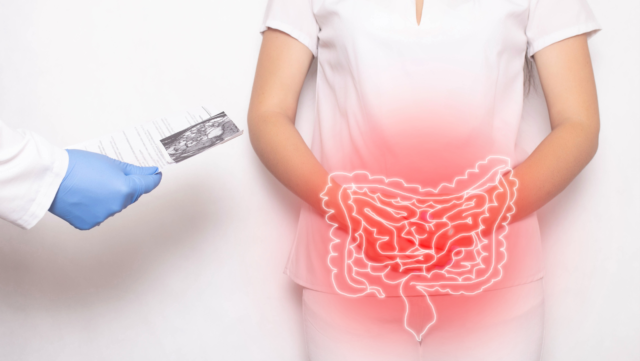
It’s natural, as we enter a new year, to aspire to a healthier and happier version of ourselves. For many, this means losing a few pounds or even training for a marathon. However, one of the most impactful ways of protecting your health is scheduling a colonoscopy.
Tryon Medical Partners gastroenterology specialist Dr. Amit Aravapalli sees patients every day to guide them through basic colon cancer prevention, as well as more chronic gastrointestinal conditions. He answers some key questions about who is at risk for colon cancer, how to prevent it and what to expect from a colonoscopy.
Am I at risk for colon cancer?
Dr. Aravapalli considers two groups of people particularly at risk for colon cancer:
- Those with a family history of colon cancer. People with a first-degree relative (mother, father, sibling) who has or had colon cancer are considered high-risk for developing it themselves. They should begin having a colonoscopy 10 years before their relative was diagnosed.
- Those with ulcerative colitis or Crohn’s disease. In general, they should begin colonoscopies at a younger age and have them more frequently than the average person because they are at increased risk of developing colon cancer.
Even if you’re not at increased risk, it’s important to start considering colonoscopies younger than you might think. The American Cancer Society’s (ACS) newest guidelines say you should get your first colonoscopy at age 45, instead of the original guidance of age 50.
“There is a misconception that if you’re healthy, you don’t need to get screened,” Dr. Aravapalli shares. “But even in a population of average risk individuals, I find precancerous polyps 55% of the time.”
How can I prevent colon cancer?
Of course, our family history is out of our control. But there are ways to lower your likelihood of having colon cancer. Dr. Aravapalli recommends:
- Cutting down on excess red meat. Those who eat a lot of red meat are at increased risk of developing colon cancer. If you are at increased risk, Dr. Aravapalli recommends cutting down on the red meat in your diet.
- Quitting smoking. People who smoke tobacco are also at increased risk. Smoking less frequently, or quitting entirely, would help to diminish one’s likelihood of developing colon cancer.
- Not skipping your colonoscopy. Although colonoscopies are unpleasant and take time, identifying and removing polyps tremendously decreases the risk of developing colon cancer. Most cancer screening strives to detect cancer at an early stage, and colonoscopies can prevent people from developing cancer at all.
“Think about a mammogram,” Dr. Aravapalli emphasizes. “They are attempting to find early stage breast cancer before it has the chance to grow and spread to other organs. But colonoscopies are different – we are trying to find precancerous lesions and cut them out before they can become cancer. You can’t say that about any other cancer screening.”
What should I expect from my colonoscopy?
With COVID-19, Dr. Aravapalli has witnessed patients delaying their screenings, thus catching cancer at later stages than if they have been screened. While he acknowledges that colonoscopies can be scary, he provides the following pro tips to take some of the mystery out of the experience:
- If there is blood in your stool, that is never normal. Visit your doctor to get a colonoscopy. Dr. Aravapalli notes that it will often be due to something like hemorrhoids, but it’s important not to dismiss it without visiting your doctor to rule out something more serious.
- Preparation for a colonoscopy (drinking the laxative) is the most difficult part for the patient. However, there are hacks to make it a little easier. Once that’s done, all the patient has to do is come into the office and their care team will handle the rest.
- It’s very common for precancerous polyps to be detected. 40% of the time, precancerous polyps will be detected. So if the provider finds something, that is completely normal and a great opportunity to remove it before it becomes something worse.
- There are other screening options. If colonoscopies are off the table for you, there are other ways to be screened, like Cologuard®. Dr. Aravapalli encourages patients to speak with their doctor to explore all of their options.
“About half of the population that is due for a colonoscopy is actually getting screened,” Dr. Aravapalli notes. “Schedule your colonoscopy today to make sure you’re starting the new year in the best position to keep yourself healthy.”
Visit the Tryon website today to learn more about colonoscopies, colon cancer and preventative screening options.
